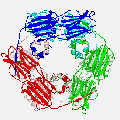
The reduced ability to respond to stress is a major characteristic of aging. Indeed, aging itself is a stressful condition. Therefore, reducing chronic causes of stress can promote longevity. Some of the best protein protectors against stress and aging are the Heat Shock Proteins (HSPs). The protective HSPs are induced whenever your body is exposed to stressing agents such as:
1. Alcohol, which is one of the likely reasons that one drink per day helps prolong life
2. Elevated body temperature
3. Environmental toxins such as heavy metals or toxic chemicals
4. Oxidative stress, which may explain part of the reason that limited exercise is beneficial
Besides their effects on stress response, HSPs also have a protective role in disease and aging. For example, much research has shown that HSPs help with cardiovascular, metabolic, and neurological disorders.
At the recent AGE research conference (May 31 to June 2, 2014), new data on HSPs was presented by Kalie Kavanagh at Wake Forest University in North Carolina. Long lived Centenarians have better heat shock response and some may have gene variants of HSPs that are protective. HSP levels typically decline with age. Experiments in monkeys to raise their HSPs preserved insulin sensitivity, lowered blood pressure, and increased endurance.
The most interesting information to come out of the HSP talk was the potential to increase your own HSP levels. The HSPs can be stimulated by raising your body temperature slightly for 10 to 30 minutes using available methods: soaking in a hot tub at 104 degrees or sitting in a steam sauna bath, or participating in any exercise in which you build up a sweat for 5 minutes or more. These activities all lead to higher HSP levels, which can remain elevated and protective for 24 hours or more.





